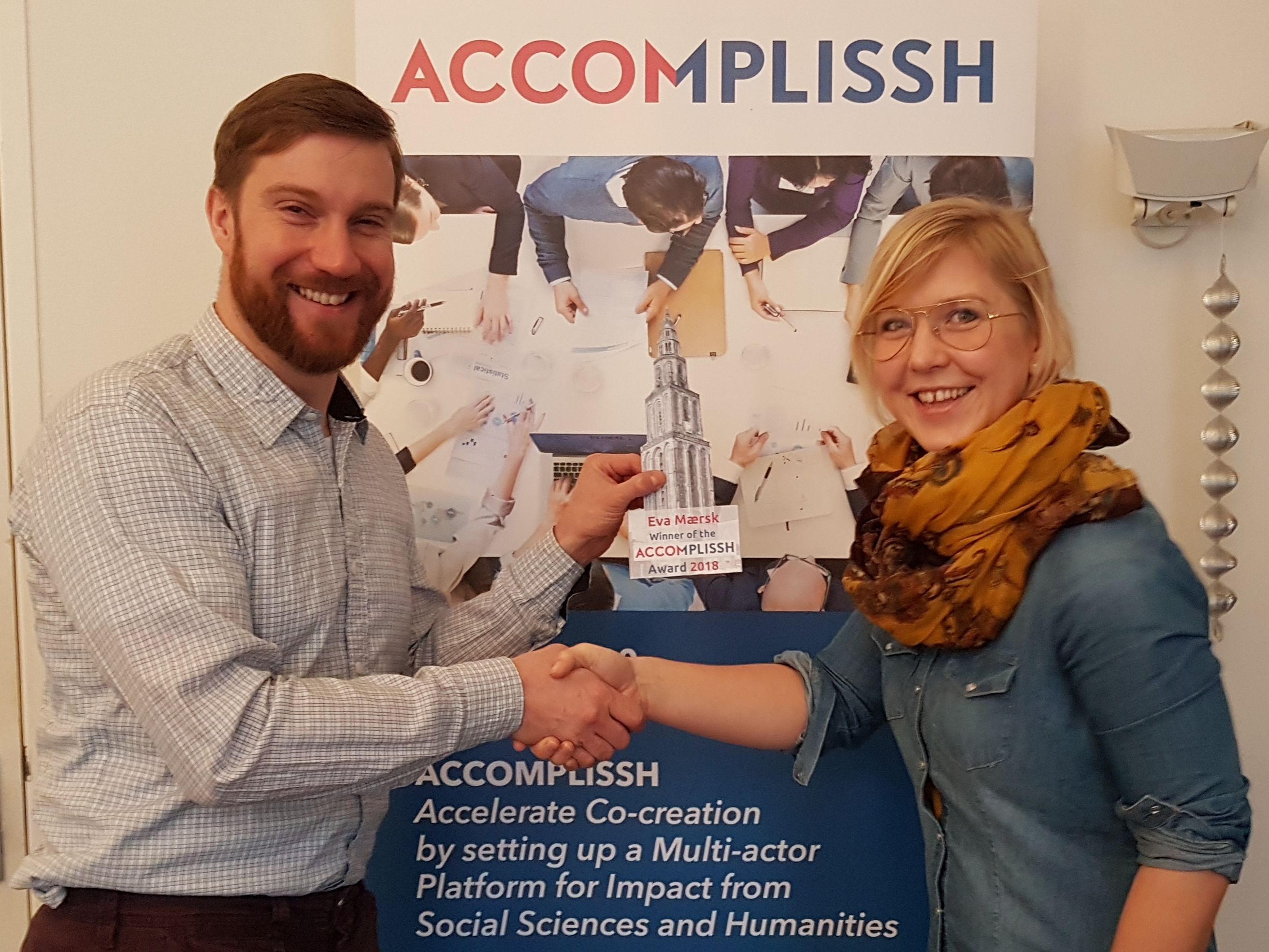Blog: Impact award - Research communication about young regional stayers
| Date: | 12 February 2019 |

In recent years Europe has seen an increase in research grants which requires societal impact and research communication in the applications for funding. The ACCOMPLISSH-project under Sustainable Society at University of Groningen has been the number one place for this theme research within the last three years. ACCOMPLISSH is a collaboration between fourteen universities and a broad variety of partners from the private sector, societal organizations and governments. To spike interest and awareness about co-creation and research communication Sustainable Society launched a number of competitions, campaigns, and projects. One of these was the ACCOMPLISSH “Impact Award” where PhD students had the opportunity to present their research within 60 seconds in a creative and innovative manner. I was the lucky winner of this prize and in January 2019 I became a part of the team from Groningen which went to the ACCOMPLISSH-summit in Barcelona to discuss the state of the art co-creation and research impact. Being a part of this conference ended up being a very inspiring experience which has stimulated both how I see my work as a PhD researcher, but also how I see the place of research in society.
In my own research, I find that research communication tremendously important. My PhD research is about young rural stayers – young people who decide to stay in or return to the area where they grew up. This is a group of people which is frequently surrounded by prejudice in the public debate, where they are often portrayed as “losers” or “those who stayed behind” or “those with lower social capital than the people who decided to move away”. On the other hand, when I was working at the University of Southern Denmark in Esbjerg on report for the local municipality I noticed how much it meant for communities in regional regions to make people stay or at least return – and also how much it meant for the stayers not to be portrayed in this negative way. I hope that more knowledge about research communication will help me in the future in relation to tell the – hopefully – more nuanced stories about the young stayers than the current public image.Research communication is one of my great passions and I am a huge fan of researchers within all fields who manage to communicate their findings in an engaging way. However, if I want to walk-the-talk of research communication I also need to do it myself. So, even though I hate to be on camera, I agreed to do an interview about my research on the impact of my work on young regional stayers as well as my thoughts about co-creation at the conference - and this turned out to be both a nice and fun experience. I have high hopes for more of this in the future. You can see the interview here


